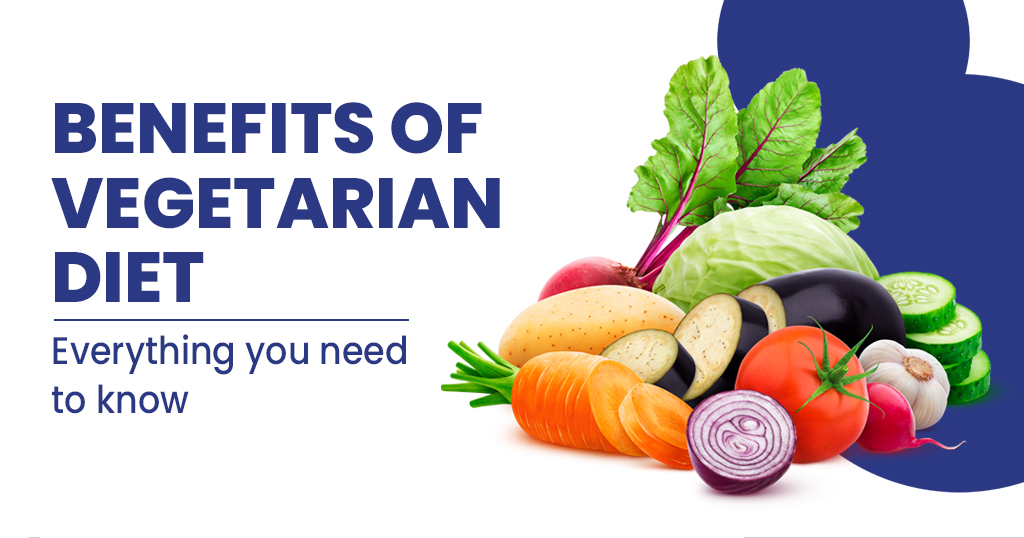Health Benefits of a Vegetarian Diet
A vegetarian diet, characterized by the exclusion of meat and fish, has gained significant popularity in recent years. Not only is it a compassionate choice for animals, but research suggests that adopting a vegetarian lifestyle can also offer numerous health benefits.
Reduced Risk of Chronic Diseases
Scientific studies have consistently shown that following a vegetarian diet can help reduce the risk of chronic diseases. By eliminating meat, which is often high in saturated fats, cholesterol, and hormones, individuals can lower their chances of developing conditions such as heart disease, high blood pressure, and certain types of cancer.
Improved Heart Health
One of the most notable benefits of a vegetarian diet is its positive impact on heart health. Plant-based foods are naturally low in saturated fats and cholesterol, which are known to contribute to cardiovascular problems. Instead, a vegetarian diet is rich in fiber, antioxidants, and essential nutrients that promote a healthy heart.
Weight Management
For individuals looking to manage their weight effectively, a vegetarian diet can be a valuable tool. Plant-based foods tend to be lower in calories and higher in fiber, promoting feelings of fullness and reducing the likelihood of overeating. Additionally, studies have shown that vegetarians generally have a lower body mass index (BMI) compared to non-vegetarians.
Increased Nutritional Intake
Contrary to popular belief, a well-planned vegetarian diet can provide all the necessary nutrients for optimal health. By incorporating a variety of plant-based foods such as fruits, vegetables, whole grains, legumes, nuts, and seeds, individuals can ensure an adequate intake of protein, vitamins, minerals, and essential fatty acids.
Lowered Risk of Type 2 Diabetes
Research suggests that adopting a vegetarian diet may help reduce the risk of developing type 2 diabetes. Plant-based foods are typically low in refined carbohydrates and high in fiber, which can help regulate blood sugar levels and improve insulin sensitivity. Furthermore, vegetarian diets have been associated with lower body weight, a key factor in diabetes prevention.
Environmental Benefits
Aside from the individual health advantages, a vegetarian diet also offers significant environmental benefits. The meat industry is a major contributor to greenhouse gas emissions, deforestation, and water pollution. By choosing a vegetarian lifestyle, individuals can contribute to the reduction of these environmental impacts and promote sustainability.

In conclusion, a vegetarian diet can provide a wide range of health benefits, including a reduced risk of chronic diseases, improved heart health, weight management, increased nutritional intake, lowered risk of type 2 diabetes, and positive environmental impacts. By making the switch to a plant-based diet, individuals can prioritize their well-being while also making a positive impact on the planet.
Frequently Asked Questions
1. What are the health benefits of a vegetarian diet?
Adopting a vegetarian diet can help lower the risk of heart disease, high blood pressure, type 2 diabetes, obesity, and certain types of cancer. It can also improve digestion, promote weight loss, and increase overall energy levels.
2. Can a vegetarian diet provide all the necessary nutrients?
A well-planned vegetarian diet can provide all the essential nutrients including protein, iron, calcium, vitamin B12, and omega-3 fatty acids. It is important to include a variety of plant-based foods to ensure adequate nutrition.
3. Is it possible to get enough protein from a vegetarian diet?
Yes, it is possible to get enough protein from a vegetarian diet by consuming a combination of plant-based protein sources such as legumes, tofu, tempeh, seitan, quinoa, and nuts. Including a variety of these foods can ensure adequate protein intake.
4. Can a vegetarian diet help with weight loss?
Yes, a vegetarian diet can aid in weight loss as it is typically lower in calories and saturated fats compared to a non-vegetarian diet. Additionally, a plant-based diet is high in fiber, which helps promote satiety and reduces overeating.
5. Are there any specific health benefits for vegetarians compared to non-vegetarians?
Research suggests that vegetarians tend to have lower body mass index (BMI), lower cholesterol levels, reduced risk of hypertension, and lower rates of heart disease. They also have a decreased risk of developing certain types of cancers, such as colorectal cancer.
6. Can a vegetarian diet help prevent or manage diabetes?
Yes, a vegetarian diet can help prevent and manage type 2 diabetes. Plant-based foods are generally low in saturated fats and high in fiber, which can improve blood sugar control and insulin sensitivity.
7. Are there any potential deficiencies associated with a vegetarian diet?
While a well-planned vegetarian diet can provide all necessary nutrients, deficiencies in certain nutrients like vitamin B12, iron, zinc, and omega-3 fatty acids can occur if not properly managed. It is important to ensure adequate intake of these nutrients through fortified foods or supplements if needed.
8. Can a vegetarian diet reduce the risk of heart disease?
Yes, a vegetarian diet has been linked to a reduced risk of heart disease. Plant-based diets are typically low in saturated fats and cholesterol, and high in fiber, antioxidants, and other heart-healthy nutrients.
9. Can a vegetarian diet improve digestion?
Yes, a vegetarian diet, especially one rich in fruits, vegetables, whole grains, and legumes, can improve digestion due to its high fiber content. Fiber helps regulate bowel movements and promotes a healthy gut microbiome.
10. Can a vegetarian diet support overall better energy levels?
Yes, a well-balanced vegetarian diet can support better energy levels. Plant-based foods provide complex carbohydrates, vitamins, minerals, and antioxidants that are essential for energy production and overall vitality.




